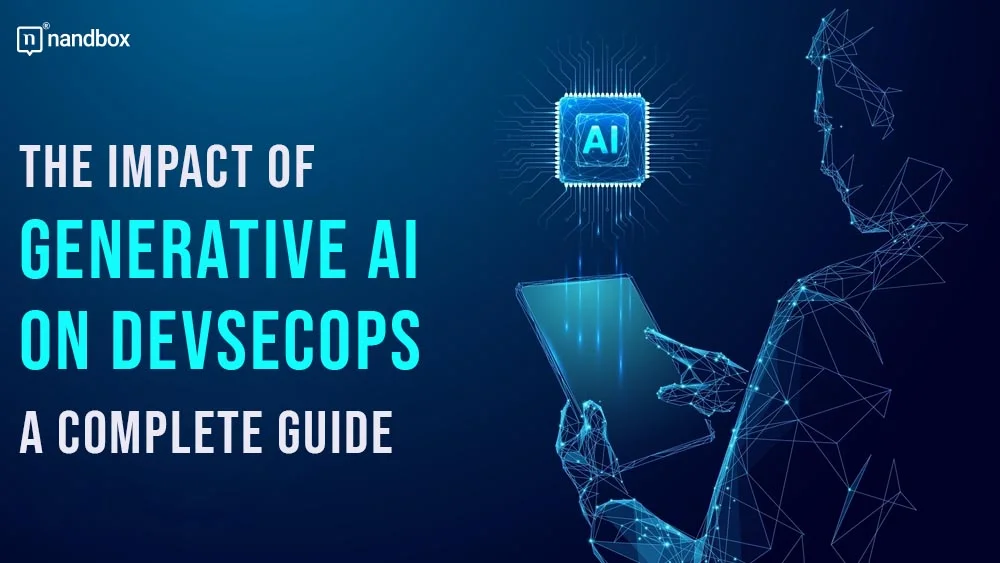Generative AI holds great promise in enhancing various aspects of DevSecOps, including code writing, analysis, testing, and documentation. Optimistically, by training AI on secure code libraries, instilling best practices, and aligning it with internal policies, developers hope to receive secure code suggestions. The technology can also aid in identifying security issues, debugging, test generation, and documentation creation.
However, the optimistic outlook is tempered by concerns that generative AI may inadvertently produce insecure code, posing significant risks for companies. Despite being in its early stages, a substantial number of developers are already incorporating generative AI into their workflows. While generative AI’s adoption is growing, the potential dangers of producing insecure code underscore the need for careful implementation and ongoing refinement of these technologies in the realm of DevSecOps.
In this article, you will learn about seven astonishing statistics regarding the impact generative AI is having on DevSecOps.
Table of Contents
7 Statistics Showing The Real Impact of Generative AI On DevSecOps
- 90% of Developers Reported the Impact on Developer Experience
- 87% of Organizations are Planning to Invest in Generative AI Coding Tools in 2024
- 80% of Developers Think that Generative AI Will Help Them Use Tools that They Have Not Done Previously
- 80% of organizations bypass A Security Policy Altogether
- 76% of Security Professionals Believe That AI Code is More Secure than Human-Written Code
- 67% of Professionals Say That They Use AI as Part of Their Jobs
- 59% of Professionals Said that They Use It For Generating Code
7 Statistics Showing The Real Impact of Generative AI On DevSecOps
Here are seven statistics showing how generative AI is impacting DevSecOps.
1. 90% of Developers Reported the Impact on Developer Experience
Sejal Amin, Chief Technology Officer at Shutterstock highlighted how their use of Microsoft Co-pilot and GitHub positively impacted their teams’ productivity just like when you buy a VPS. According to him, “After just eight hours of learning, 90% of developers reported an impact on the developer experience. Some of the early feedback we got is that a majority of our developers increased their productivity.”
Despite a positive impact, Sejal Amin was still skeptical about AI’s ability to generate code with performance, stability, and security in mind. According to him, there is no AI code generation tool currently available that can tick all these boxes. A few years down the road, it could change and we might see many tools capable of generating code that is not only secure but also performs admirably, and is also stable.
2. 87% of Organizations are Planning to Invest in Generative AI Coding Tools in 2024
More and more businesses are planning to integrate code AI generation tools deeply into their software development pipelines. That is why they are heavily investing in these AI coding tools. According to a survey, 87% of businesses will invest in these AI code-generation tools in 2024. Expect that number to jump in the next few years as this trend will only get bigger.
3. 80% of Developers Think that Generative AI Will Help Them Use Tools that They Have Not Done Previously
According to a SlashData report, a vast majority (80%) of developers have a positive sentiment about generative AI tools and their impact on your productivity. This means that developers are using it to boost their productivity. That was not surprising. What surprised us was the fact that the report also highlighted that 80% of developers think that generative AI will help them use tools that they have not done in the past.
4. 80% of organizations bypass A Security Policy Altogether
If you think that the concerns surrounding the security and privacy of these generative AI tools are just hype, you need to pay attention to this stat. Another survey conducted by Synk revealed that 80% of businesses said that developers in their organizations bypass AI security controls and policies altogether. This makes them more prone to prompt injection attacks and other AI-centric cybersecurity attacks.
5. 76% of Security Professionals Believe That AI Code is More Secure than Human-Written Code
By far the most shocking revelation came to light when the Snyk report came out in November. According to the Snyk report, 76% of security professionals and technology professionals believe that AI-generated code is more secure than human-written code. Even though there is other evidence to contradict this finding such as a research paper from Stanford, it is still a big feat especially when you consider technology is still in its early stages and it will mature as the years go by.
6. 67% of Professionals Say That They Use AI as Part of Their Jobs
According to a CoderPad survey of over 13,000 tech professionals, 67% reported using AI in their jobs. Notably, tools like ChatGPT and GitHub Copilot are popular choices. This high adoption rate is a big positive for generative AI development services and generative AI tools, especially when you consider how recently these coding co-pilots have been introduced.
As more co-pilots make their way to the market, expect the competition to heat up even more. Higher competition will push vendors to offer more features at a competitive price to gain a larger market share. This would make these co-pilots even more accessible for businesses. The direct consequence of this would be a higher adoption rate amongst businesses.
7. 59% of Professionals Said that They Use It For Generating Code
The same CodePad survey referenced earlier in the article shows that 59% use AI for code assistance, over half for learning, and approximately 45% for code generation. These numbers indicate that almost all generative AI tools are extensively being used for generating code, code assistance, and even for learning purposes. As the technology matures, expect to see new use cases emerge just like cloud hosting server. It will be able to handle sophisticated use cases and perform complex tasks as well.




